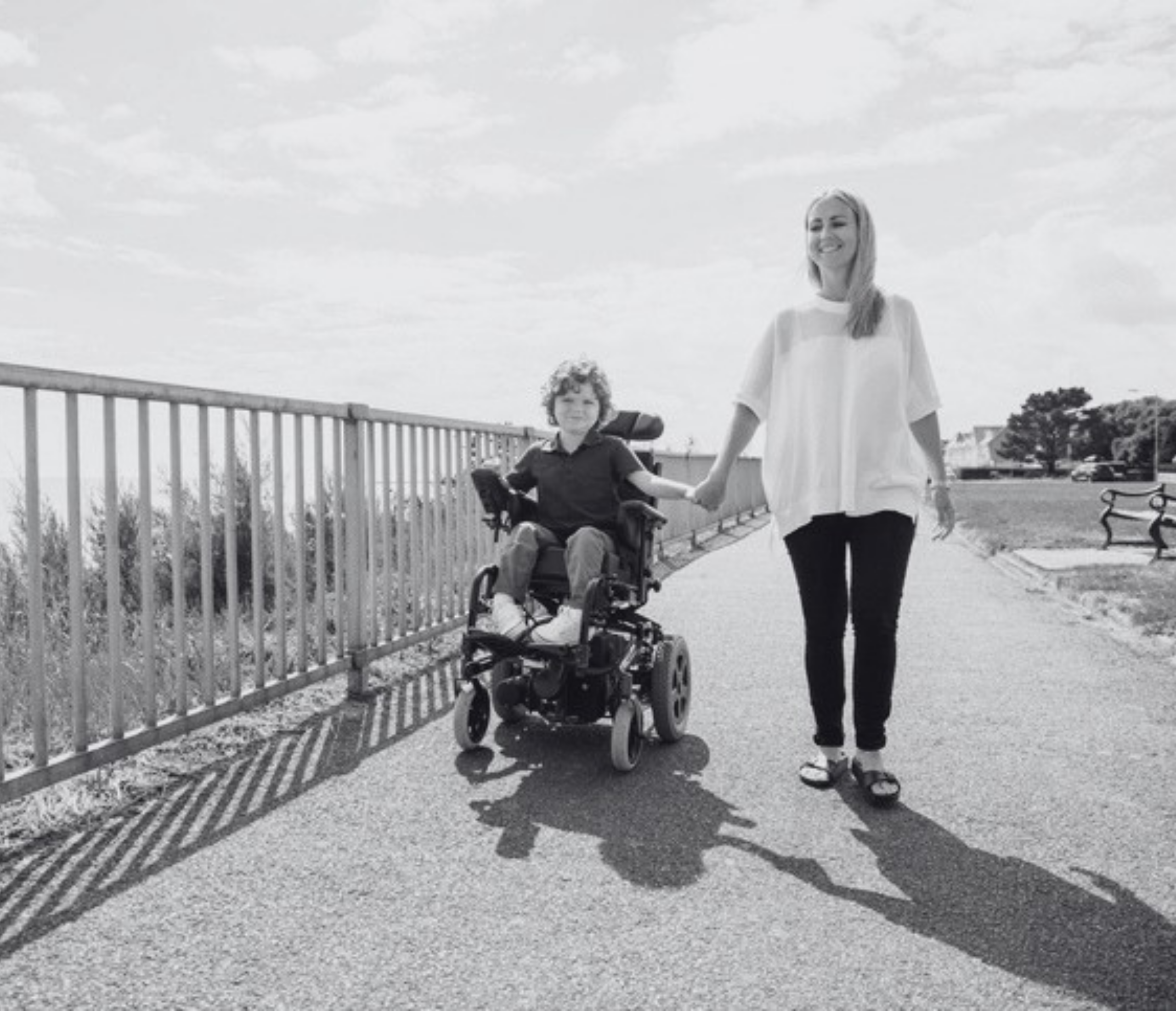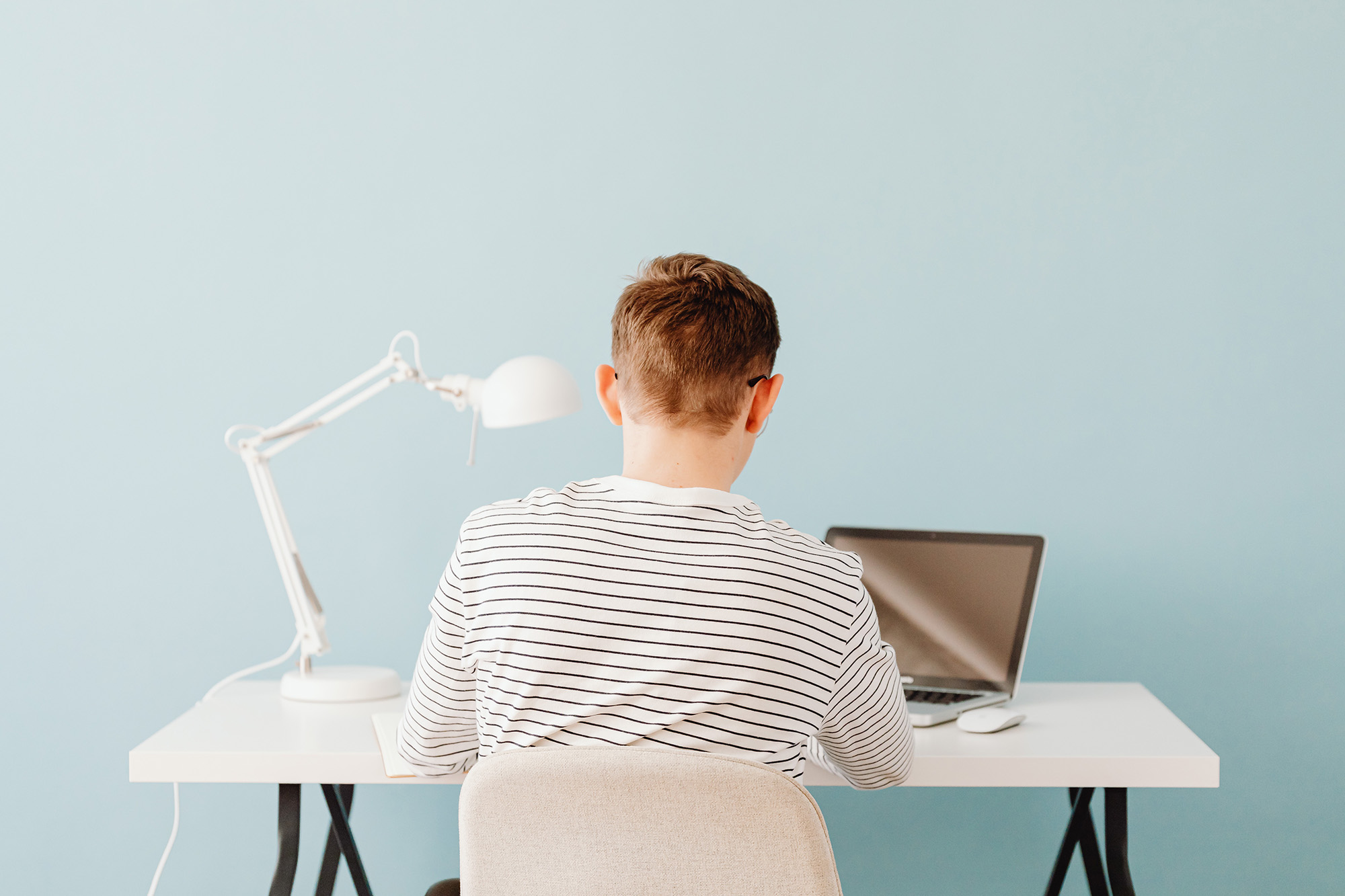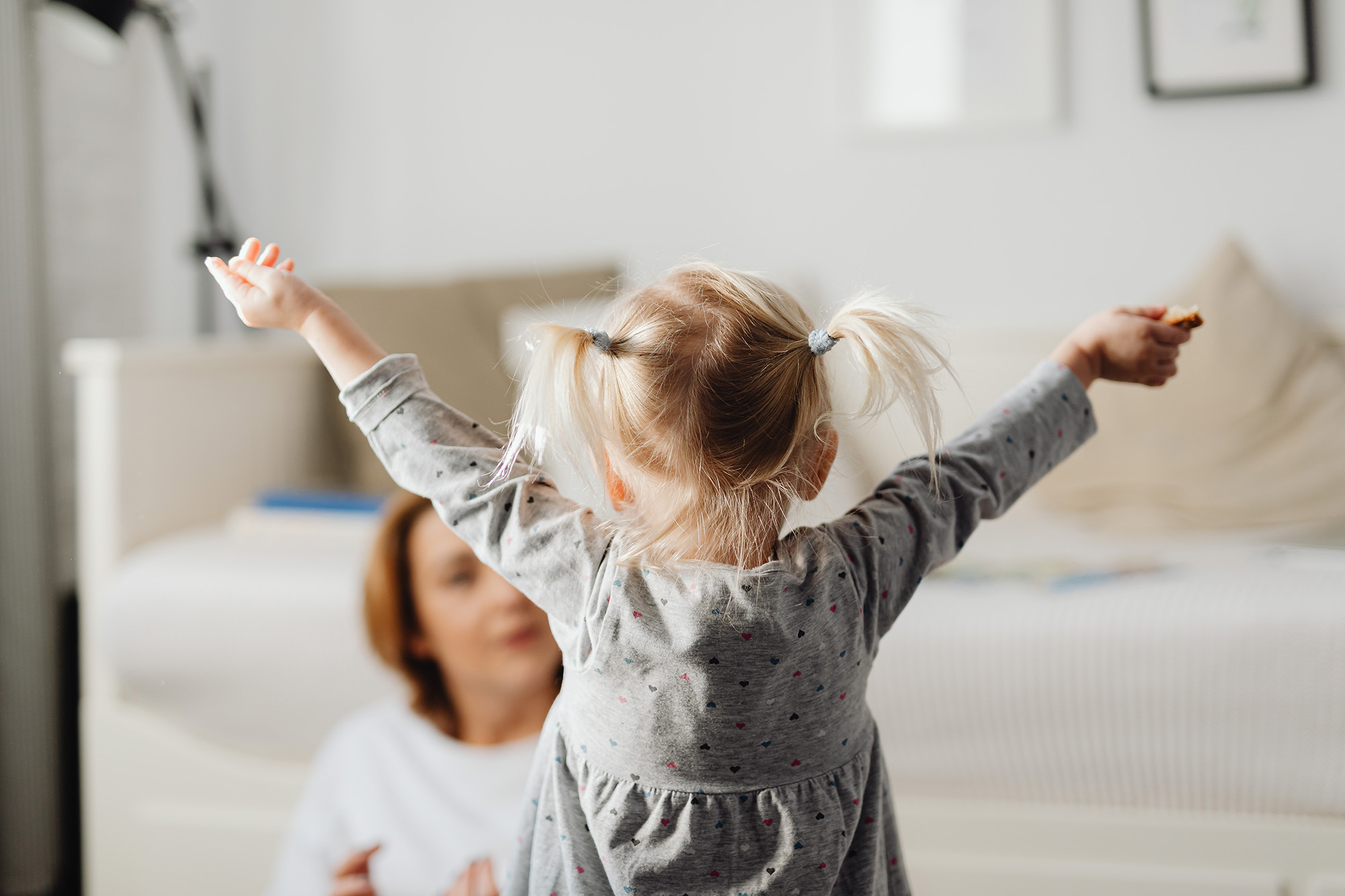
Healthcare at home with Sonderwell ensures you are seen for all that you are
Sonder
The realisation that everyone you see, everyone who passes you by has a life as complex and unique as your own.
Our Stories
it's the journey that matters

Meet Jon
Growing up Jon was born in Plymouth and spent his Childhood between Plymouth and Bristol. Jon moved out of the family home when he was 16 and made friends with people who did not have a positive impact on him, he started smoking cannabis and became very paranoid, pretty soon Jon became really unwell and was sectioned under the Mental Health Act and admitted to the local Mental Health Hospital. Where the care began Jon was diagnosed with Paranoid Schizophrenia, he was really unwell for a while and had several hospital admissions over the following years. In 2017 Jon was referred to Arrow and he moved into a supported living property with one other person. At the time Jon had someone around to support him all the time and daily visits from the community Mental Health Team. About 8 months later Jon moved out of this property and into a two bedroom house on his own. Jon now has just 22 hours of support a week and has been living in this house for 5 years. Jon loves living on his own and has nailed it! Jon is really proud of his home and works hard, with a little encouragement, to keep the house clean and tidy. Jon enjoys cooking for himself with his new air fryer, although also confessed that he still has a healthy relationship with McDonalds. Jon has worked hard tidying up his garden with new furniture and lighting so that he can enjoy the summer outside. Taking action with football This year Jon decided that the relationship he has with McDonalds was getting the better of him so he joined a local football group playing five aside football, with his preferred position as left back! Jon has really enjoyed meeting new people who are genuine friends, not people who would bring trouble to him. Jon did say that he has found football to be more tiring than he expected. He used to watch the footballers on the TV and think ‘why don’t you just run a bit faster’ Jon says he now understands it might not always be that easy, after the first match Jon reportedly couldn’t move the next day! Jon has shown real commitment to his football team and last month Jon was very happy to be nominated the ‘man of the match’ award. This is chosen by all the other people in the team and was a really proud moment for Jon. Jon told me that he sleeps better and feels better for doing the exercise. Jon says he has overcome his paranoid ways and he has a much better way of thinking, he deals with things that bother him and most importantly he has learnt to look up, rather than look at the floor. Jon says he always tries to be a nice person and this helps him understand things that happen and that he enjoys feeling happier and less stressed out by looking after himself. Jon is looking forward to the future and has new goals to get a girlfriend and a car!

Meet Andrew
Andrew’s zest for life knows no boundaries! Since a very young age, Andrew has suffered from undiagnosed muscle weakness and scoliosis, which has meant that his childhood and progression into adulthood have involved a range of complications. Now a young man aged 22, Andrew’s conditions have left him requiring the use of a ventilator and electric wheelchair, whilst also having to rely on others for his personal care. Andrew has faced many challenges in his life, but he hasn’t allowed anything to stop him from enjoying himself and living life to its full potential. He shows a great desire to constantly further himself and pushes the boundaries of what he can achieve. In daily life, Andrew loves nothing more than playing video games, watching TV, going to the cinema, and enjoying days out. InVent Health offer guidance and support to patients and families As a nurse-led service, InVent Health offers clinical support, guidance, and advice to patients and their families - forming professional relationships which are always open and honest. Andrew and his family have worked closely with his care team for several years, and the team is now simply an extended part of Andrew’s family. Passionate about providing high-quality care through excellent training programs, InVent staff offer round-the-clock care and support and are compassionate, caring, and reactive. 24/7 care InVent Health has been by Andrew’s side from day one, supporting him through the transfer from child to adult services and throughout his studies, 24/7, including in the classrooms at University. It’s an absolute pleasure and inspiration to see Andrew continue to grow and develop into the fine young man he is. The future is looking bright Andrew is currently undergoing the completion of a degree in History at the University of Essex, where he frequently tops his class when it comes to exam results. Want to know more about our services? You can find out more here. Our friendly enquiry team can be contacted at info@inventhealth.co.uk.

Meet Zoe
Nothing stops Zoe from attending a mainstream school Zoe has a cuffed tracheostomy, which means she gets help with her breathing. The cuffed tube aids the safe delivery of oxygen to her lungs and keeps her upper airways unobstructed. However, despite her tracheostomy, she requires round-the-clock care. Zoe has received care from Enviva since she was three years old and when she started at a local infant school, it became apparent that, if she was going to fulfil her full potential and enjoy her school life to the maximum, the school staff were going to need proper training in how to look after her. Enviva step in and support school Zoe’s school contacted Enviva who were happy to help ease her integration into the mainstream education system. Our primary importance was ensuring that Zoe could fully experience normal school life without feeling isolated or excluded in any way and that school staff knew how to detect signs of potential issues and support Zoe as and when required. The first step was to assign a Practice Facilitator who regularly attended the school and discussed Zoe’s case history with teachers and staff. Within eight weeks, the facilitator had identified several key individuals within the school community who were best suited to support Zoe and had also provided extensive training to everyone on staff. For any out-of-the-ordinary concerns or additional support, Enviva also always provided the school with access to a helpline for use when Zoe was present. Confidence is key Knowing that all the staff at the school were fully aware of her needs, gave Zoe and her family the confidence to fully embrace and enjoy school life. The future is looking bright The teachers and staff at Zoe’s school feel confident they can manage her needs and are well supported by Enviva. Zoe is now completely integrated into the mainstream school system and able to learn alongside her peers. The feedback from the school is that the training was outstanding and very professional, and as a result of Zoe’s case, Enviva has been commissioned to do similar training in other schools. Enviva is proud to work within communities to ensure that children, like Zoe, with complex needs and disabilities, can enjoy fully inclusive school life and benefit from the integration within their peer groups which is such an invaluable part of a child’s development. Want to know more about our services? You can find out more here. Our friendly enquiry team can be contacted on 0300 3033 508 or complexcare@envivacare.com.

Meet Adam
Demonstrably superior care outcomes Adam is a nine-year-old little boy with Goldenhar syndrome, a rare congenital conditioncharacterised by incomplete development of the ear, nose, soft palate, lip and mandible. It isassociated with anomalous development of the first and second branchial arches. Adam is severely autistic with a tracheostomy and is non-verbal. He has a history of faecalsmearing when he is distressed or otherwise unhappy. Sonderwell steps in to support Sonderwell were asked to support Adam and his family through the provision of oneafternoon and one night whilst Adam went to a respite centre. As he is non verbal hisoutward behaviour, including faecal smearing, could be considered directly proportional tohis measure of contentment. Our care helps Since being supported by Sonderwell, Adam is thriving and appears happy, this is demonstrated by the fact that there has not been a single incident of faecal smearing.

Meet Vince
Rapid response keeps a client safe in a time of crisis Vince is a delightful seventeen-year-oldyouth with Noonan’s syndrome. Noonan’s syndrome manifests itself in many different forms affecting multiple organs. In Vince’s case he has severe epilepsy, is fed through a PEG (percutaneous endoscopic gastrostomy), tube and has nocturnal apnoea requiring oxygen. Vince lives at home with his mum, who has been diagnosed with a rare tumour which gives her a lot of severe pain. Urgent attention required Shortly, after diagnosis mum had an emergency admission to hospital at the weekend. This meant that either a full 24-hour care team had to be put in place for Vince, or he would have to be moved to a hospital or some other residential setting on an emergency basis. The commissioning CCG and Sonderwell agreed that a nursing home or hospitalisation was not the desired outcome for a vulnerable adolescent like Vince. Sonderwell’s rapid response team placed an emergency care team in to the package to make sure Vince was looked after. The team went above and beyond the call of duty to care for Vince and ensure he was looked after and not distressed. The best possible outcome In the meantime, mum was given continuous feedback and “bulletins” on how Vince was doing to ensure she as assured of his welfare. Mum was given plenty of opportunity to rest and convalesce and is grateful that as a direct consequence of Sonderwell’s flexibility, responsiveness and commitment her son was kept safe and in the most appropriate environment.

Meet Richard
Successful home care reinstates a sense of self and quality of life Richard is a fifty-four-year-oldgentleman, a car enthusiast,who suffered a brain stem haemorrhage in 2017. This has left him ‘locked-in’ – this means he is unable to move any part of his body (apart from his eyes), is unable to talk or swallow and requires full assistance with all his personal care needs. He spent 18 months in a Brain Injury Rehabilitation unit. Although his physical care needs were being met, he was often left for long periods of time alone either in bed or his wheelchair in a private hospital type room. As a result, he became very sleepy and did not attempt any interaction with the staff who cared for him. The only time he showed any response to others was when his partner or family visited. Enter Sonderwell His partner was keen to have him home and Sonderwell Complex Care recruited a team of care workers who worked alongside the staff of the unit learning his requirements in order to get him home. Richard requires 24-hour care. He receives nutrition and medications via his gastrostomy tube. He is doubly incontinent and has a urinary catheter in place. He requires oral suction to help him manage his secretions. He requires full help with moving and so there are regular double ups of carers during each day and night so he can be moved safely. Things are looking up From the moment Richard came home with a full Sonderwell Complex Care team in October 2018 he began to improve in both mind and spirit. His level of alertness gradually improved and he began to attempt communication by blinking his eyes. This led to the team creating a YES/NO board which he now uses to communicate his consent and preferences. His care team take him out in his wheelchair to enjoy walks, he attends hydrotherapy sessions. Being at home has vastly improved his quality of life. He enjoys watching Formula One races, watching films with his family, having car magazines shown and read to him. His partner and his family have also had their quality of life improved – he is part of the family again. What it means to family life His partner said that “The staff are exceptionally caring and attentive. They are fully engaged with my partner’s care and genuinely concerned for his welfare. I am convinced he benefits from this. I would not consider any other provider. Everyone treats him as an individual.” The team go above and beyond the call of duty to care for Richard and ensure he is looked after and not distressed.

Meet Jonathan
Peace of mind during difficult times Jonathan is an eight-year-old with very severe epilepsy including complex seizures requiring a unique and extremely detailed management plan of his condition. Sonderwell took on the package initially for four nights a week, to provide relief for his mother. Mum and Jonathan are of East European heritage and have no immediate family or friends for support. Earlier this year mum, developed a lump which upon investigation was found to be malignant. Within two weeks of symptoms she was booked in for surgery to have a mastectomy. This was clearly a very distressing and emotional time for Jonathan’s mum. Not only was she apprehensive about her own health, she was very concerned about Jonathan; how he would cope and who would take care of him. How we supported the family In desperation, she rang Sonderwell and asked for help. Our nurse manager, supported her and immediately signposted her to the appropriate CHC manager at the CCG. The CCG were very responsive and sympathetic. They rang Sonderwell to ask whether we could provide further support to Jonathan during mum’s stay in hospital and convalescence. Within days, Sonderwell not only put together a team of carers to support Jonathan during the daytime (together with the night carers already in place), but also provided full training on Jonathan’s epilepsy support plan so that they could safely meet the challenging and complex needs of Jonathan and his seizures. Although mum was scheduled to be in hospital for three days, she ultimately stayed seven whilst Sonderwell provided around the clock care to Jonathan. It all worked out in the end Everyone was naturally concerned how Jonathan would cope with the new and unfamiliar faces, especially when he too would naturally be upset at his mum’s absence. But when mum came home, she commented that all the team were really caring and supportive and Jonathan hardly noticed she was gone! At a very difficult time in her life, this was of great relief and comfort to her.

Meet Bailey
Never miss out on the important stuff Bailey is a pleasant five-year-old little girl with Jeunes disease who has a tracheostomy and is ventilator dependant 24 hours a day. Sonderwell were commissioned to provide seven nights and three, eight-hour day shifts each week for Bailey’s care. Bailey’s parents are of Middle Eastern heritage and have no immediate family in the UK, (nearest relatives are in Germany). Bailey’s mother was pregnant and scheduled to have an elective caesarean for her 2 nd child. During this time Bailey was scheduled to be admitted to a hospice and respite centre. Emergency care on hand Unfortunately, about a month before her confinement date, mum developed pre eclampsia complications with raised blood pressure. Upon review, the obstetrician and midwives agreed it was prudent to bring forward the caesarean by three weeks, so the elective procedure effectively became an emergency one. The hospice and respite centre that Bailey was booked in to, was not ready nor able to take her ahead of schedule. There being no other family or friends, Sonderwell stepped in to support. The nurse manager promptly met the staff, communicated the situation and made significant changes to the shift patterns to extend night shifts and added new day shifts to ensure that Bailey was kept safe and supported all times. This enabled dad to spend the bulk of his time supporting mum in hospital. Continued support when you need it most Mum was admitted on Thursday and the baby duly arrived by caesarean on Saturday. After the birth, there were further complications which went on for 2 weeks. But during this time EnViva staff carried on supporting Bailey. Mum later confided that she had complete confidence in Sonderwell staff and was not worried about Bailey’s care whilst she was confined. Dad was overjoyed and was grateful to Sonderwell, without whom, in his words, he would not have been present at the magical occasion of the birth of his second child. Mum, Dad, Bailey and the baby all continue to thrive!
What they say about us
testimonials

They are an asset to us, and really gave off a good reputation as carers for you as a care agency as well.
Katie & Sam Bailey

I have always found them easy to talk to and very supportive.
FW
Subscribe to our mailing list
Become a part of Sonderwell
Healthcare at home with Sonderwell ensures you are seen for all that you are



